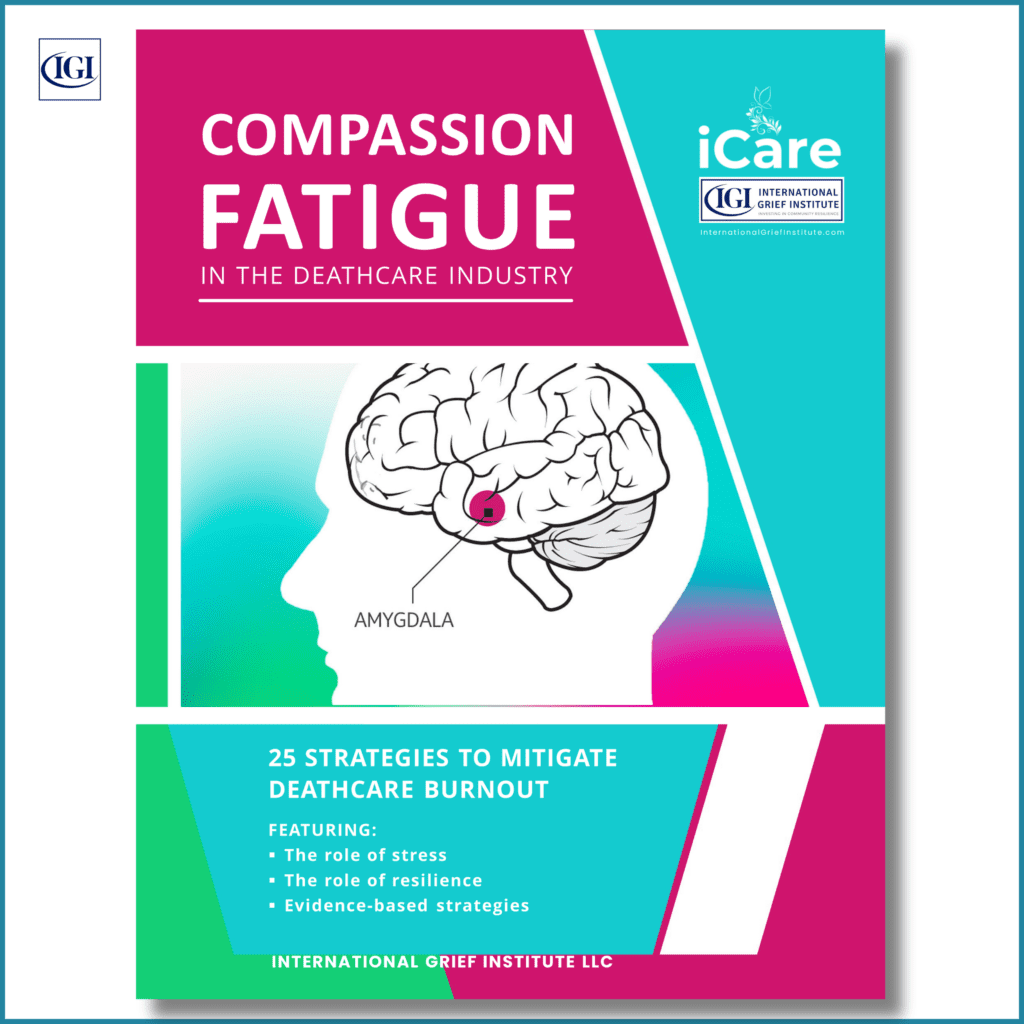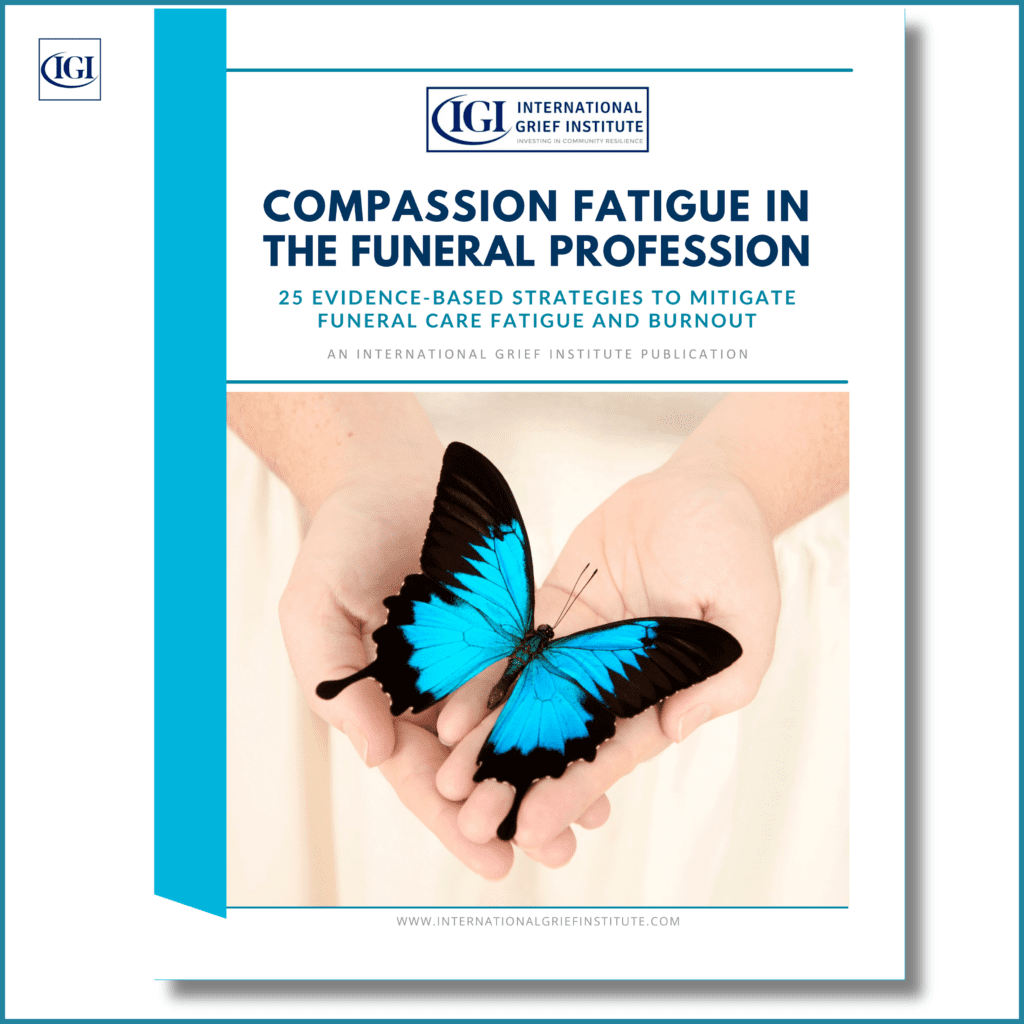Learn to mitigate stress, and achieve a better work-life balance.
Loss is a daily occurrence for deathcare professionals. For many in the industry, It’s more than a job—it’s a calling that takes a special heart. While death is the foundation of the industry, it’s personal stress coupled with societal stress, staff shortages, repeat exposure to suffering, and more that enables compassion fatigue to become an industry danger.
THE COST OF CARING
Anyone who cares for others as part of their professional responsibilities is someone who has a higher risk of suffering from compassion fatigue. Commonly affected industries include:
- Firefighters & EMTs
- Law enforcement
- Funeral professionals and staff
- Hospice professionals and staff
- Nurses—Palliative, ICU, ER
- Human donor professionals
- Mental health professionals
- Child welfare workers
- Teachers
- Clergy
HOW IT HAPPENS . . . AND HOW TO HELP
When professionals are unable to recharge while juggling families in crisis, the emotional residue of secondary traumatic stress can erode one’s mental and physical health. Common feelings include irritability, insomnia, difficulty concentrating, and worse—clinical errors.
Without mitigation, it can even lead to career-ending burnout.
The good news is there’s hope in 2 easy steps.
The first step is an honest assessment of the ABCD’s of self care. The second step is proactively developing a toolbox of stress-buffering strategies to offset stress and restore a sense of control before it impacts performance, disrupts quality of care, or worse—lead to career burnout.
If your staff and clinicians are struggling with compassion fatigue, IGI can give them the knowledge and tools they need to survive through our 2-hour compassion fatigue workshop.
PARTICIPANTS LEARN:
- Cognitive, emotional and physical signs of compassion fatigue
- How compassion fatigue applies to professionals
- Complementary roles of stress management, resilience, and career longevity
- Evidence-based techniques that mitigate negative work-related effects
- How to protect employee assets
MORE TESTIMONIALS:
- So different, creative and positive – thank you!
- Terrific!
- Very eye opening and informative.
- Great presentation! More people could benefit from a session like this.
- Very helpful. Excellent speaker.
- Very upbeat and a fun presenter.
- This was an awesome class and my favorite of the convention!

BRING COMPASSION FATIGUE EDUCATION TO YOUR EVENT!
Best presentation of the entire conference!
Amazing speaker! Great handout, great presentation.
We heard nothing but wonderful feedback, everyone loved it!
Amazing presentation! Could have listened all day!
Best session for me personally of the whole conference. Outstanding!
Best session I’ve taken. Great job!
I needed this! There were great tools presented that I will definitely use. Thank you!
FOR THE DEATHCARE INDUSTRY

FOR THE FUNERAL INDUSTRY
